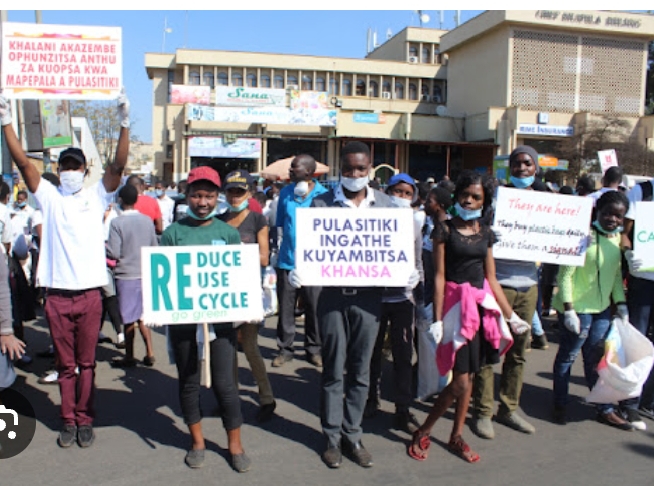
The recent High Court ruling upholding Malawi’s 2015 thin plastic ban is a landmark victory for environmental conservation. However, legal victories without societal action are hollow. The youth of Malawi, as stewards of the nation’s future, must recognize the gravity of plastic pollution and spearhead efforts to hold the government accountable in enforcing this critical ban.
Why Should the Youth Care?
Plastic pollution is not just an environmental issue; it is a direct threat to public health, economic stability, and sustainable development. Thin plastics clog drainage systems, contributing to floods that destroy homes, displace families, and facilitate the spread of waterborne diseases. They contaminate soil and water sources, affecting agriculture and food security, which are the bedrock of Malawi’s economy. For a generation striving for progress, ignoring such an omnipresent threat is tantamount to compromising their own future.
The Power of Youth Leadership
Malawi’s youth constitute the majority of the population, wielding immense potential to drive change. History has shown that youth-led movements are catalysts for transformative societal shifts. The environmental battle is no different. Young people are innovative, tech-savvy, and deeply connected through social platforms that can amplify their voices and mobilize communities.
Taking Action: From Awareness to Advocacy

- Education and Awareness: Youth groups and student organizations should champion environmental education, highlighting the dangers of thin plastics and promoting sustainable alternatives.
- Community Mobilization: Organizing clean-up campaigns, workshops, and eco-initiatives can create grassroots pressure for policy enforcement while fostering a culture of environmental responsibility.
- Policy Advocacy: Engaging with policymakers, participating in public forums, and utilizing social media for advocacy can keep the ban in the public discourse and pressure the government to act decisively.
- Innovation and Entrepreneurship: Young entrepreneurs can lead by developing eco-friendly products and sustainable business models that reduce dependency on plastic.
Challenging the Status Quo
The government’s failure to enforce the thin plastic ban is a disservice to Malawi’s future. The youth must not be passive observers. They should demand accountability from leaders, question lax enforcement, and challenge complacency. This is not just about environmental activism; it is about protecting livelihoods, health, and the heritage of future generations.
Conclusion
The High Court ruling is not the end but the beginning of a renewed fight against plastic pollution. The youth of Malawi stand at a pivotal crossroads: to either watch the future deteriorate or to rise as champions of change. The choice is clear, and the time to act is now.
About the author: Denis Carlos Zimba is an accomplished economist, infrastructure and environmental specialist, and entrepreneur. He studied at the Malawi University of Business and Applied Sciences and The Catholic University of Malawi. Denis has a strong background in development economics, infrastructure development, environmental sustainability, climate resilience, and operations management.
He is the Founder and CEO of three organizations:
LETS BUILD IT – A construction and infrastructure development company.
Supplink Enterprise – A supply and logistics firm.
Sustaina – An NGO focused on climate and environmental literacy.

